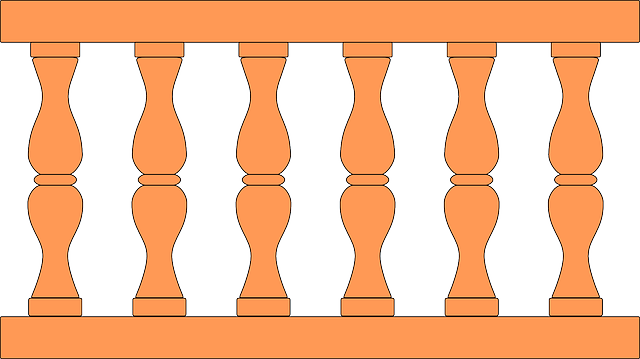In New Bedford, Massachusetts, where the seasons unfold with distinct character, proper fence maintenance is not just a task but an investment. This comprehensive guide navigates the crucial aspects of maintaining your property’s fence through all four quarters. From preparing for spring’s awakening to winterizing against harsh conditions, each section offers tailored recommendations. By adhering to these practices, New Bedford residents can ensure their fences remain functional, aesthetically pleasing, and long-lasting throughout the year.
- Understanding New Bedford's Seasonal Climate
- Preparing Your Fence for Spring
- Regular Cleaning and Maintenance Tips
- Treating Common Fence Issues in Summer
- Fall Fence Inspection and Repairs
- Winterization for Durable Fences
Understanding New Bedford's Seasonal Climate
New Bedford, Massachusetts experiences four distinct seasons, each with its own unique impact on outdoor structures like fences. Understanding the seasonal climate variations is crucial for proper fence maintenance. The region enjoys warm summers and cold winters, often characterized by high humidity and occasional frosts in spring and fall. These weather patterns can take a toll on fencing materials over time, making timely maintenance essential to prolong their lifespan.
During the summer months, residents should focus on regular cleaning to remove dirt, mold, and mildew buildup, which can weaken wooden fences. Winter brings cold temperatures and potential snow accumulation, increasing pressure on fences. It’s recommended to prepare for winter by securing loose posts and panels and applying protective coatings to metal fences to prevent rusting.
Preparing Your Fence for Spring
As winter’s grip weakens, New Bedford, Massachusetts, begins to awaken from its slumber. With spring’s arrival, it’s time to prepare your fence for a new season. Start by inspecting any damage or wear that may have occurred over the colder months. Repair or replace any broken boards, posts, or rails to ensure structural integrity and a clean, appealing appearance.
Cleaning is a vital step in fence maintenance. Remove any debris, leaves, or snow buildup from the previous winter. Use a pressure washer or brush to thoroughly clean the fence, eliminating dirt and grime that may have accumulated. This process will not only enhance the aesthetic appeal but also help prevent rot and pest infestations. After cleaning, consider repainting or sealing your fence to protect it from the upcoming warmer months.
Regular Cleaning and Maintenance Tips
Keeping your fence clean and well-maintained is essential for its longevity, aesthetic appeal, and safety. In New Bedford, Massachusetts, where seasonal changes can be distinct, regular cleaning and maintenance are crucial year-round. Start by removing any debris, such as leaves, branches, or twigs, that may have accumulated over the winter or during autumn. Use a gentle pressure washer to thoroughly clean the fence, removing any dirt, mildew, or algae buildup. This process not only improves the visual aspect but also prevents potential damage caused by moisture and mold.
On a bi-weekly basis, inspect your fence for any signs of wear and tear, particularly after harsh winter conditions. Look out for loose or damaged boards, rusted fasteners, or rot. Regular repairs and replacements will ensure the structural integrity of your fence. Consider using weather-resistant materials to enhance durability and minimize maintenance in the long term. Additionally, applying a fresh coat of paint or sealant every season can protect against environmental factors, prolonging the life of your fence and maintaining its vibrant appearance.
Treating Common Fence Issues in Summer
During the summer months, New Bedford’s warm weather can bring both joy and challenges for fence owners. One of the most common issues that emerge is rot, particularly in wooden fences. Prolonged exposure to sunlight and moisture can weaken the structural integrity of your fence, leading to decay and potential safety hazards. Regular inspection and prompt treatment are crucial; address any signs of rot or mold immediately to prevent further damage.
Additionally, summer is a prime time for pest infestations. Insects like termites and carpenter bees can cause significant harm if left unchecked. Regular cleaning and sealing of your fence can deter these pests. Maintaining a well-trimmed landscape around the fence will also make it less appealing to insects, as they tend to prefer dense vegetation.
Fall Fence Inspection and Repairs
As the leaves start to change color and fall, it’s crucial to perform a thorough inspection of your fence in New Bedford, MA. This is particularly important for those with wooden fences, as autumnal conditions can accelerate wood decay. During this inspection, look for any signs of damage or rot, especially at the base of the posts where moisture accumulation is most likely. Repairs should be made promptly to prevent further deterioration and ensure the fence remains structurally sound throughout the winter.
Consider replacing any rotted wooden sections with fresh material, securing loose boards, and reinforcing weak spots with metal brackets. Additionally, check the integrity of all fasteners, including nails and screws, tightening as needed to maintain stability. A fall fence inspection is an essential step in maintaining the beauty and functionality of your property’s fencing system, ensuring it can withstand New Bedford’s seasonal changes.
Winterization for Durable Fences
Winter can be tough on fences, especially those made of wood or vinyl. To prepare your fence for the cold season and ensure its longevity, consider a thorough winterization process. For wooden fences, start by cleaning and sanding any damaged or faded areas to smooth out the surface. Apply a fresh coat of sealant or paint to protect the wood from frost, snow, and freezing temperatures. This step is crucial as it prevents water seepage, which can lead to rot over time.
If you have a vinyl fence, winterization involves inspecting for any cracks or damage and making repairs as needed. You can then use a garden hose to clean away dirt and debris, ensuring no buildup that could attract mold or mildew. Applying a specialized cleaner designed for vinyl fences can help restore their original appearance and protect against UV rays, which can degrade the material over winter.
